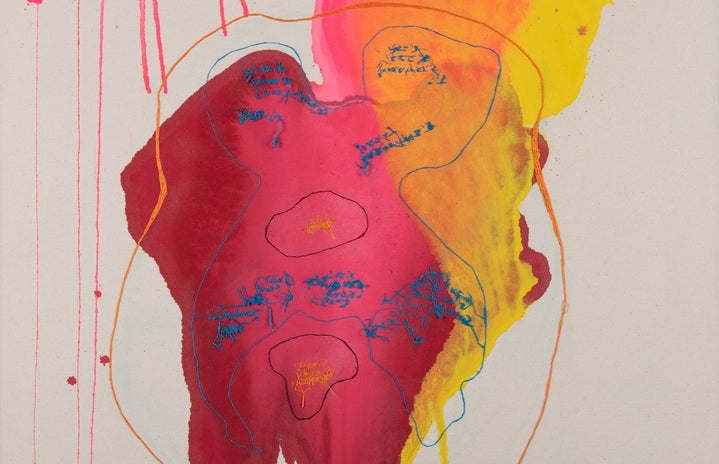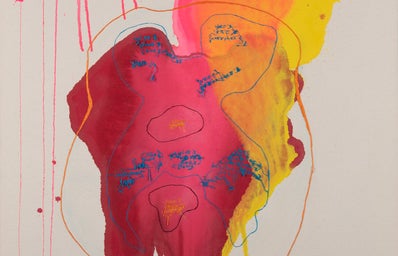Content warning: This article includes mention of sexual abuse, PTSD, and suicide.
The Perks of Being a Wallflower both a novel and a film directed by Stephen Chbosky, delicately navigates the complexities of adolescence. Released in 2012, the movie follows the journey of Charlie Kelmeckis, portrayed by Logan Lerman, a reserved teenager grappling with the aftermath of a troubled past. Set against the backdrop of the early 1990s, the narrative unfolds during Charlie’s freshman year in high school, illuminating his encounters with friendship, introspection, and mental health.
Chbosky’s adept direction captures the essence of youth, infusing the film with emotional resonance and authenticity. Central to the story are themes of mental health and the enduring impact of past traumas on one’s present. Charlie’s internal struggles, haunted by depression and self-doubt stemming from undisclosed shadows, form the core of the narrative. Despite finding solace in friendships, Charlie’s turmoil deepens, echoing the profound complexities of adolescent emotions.
Charlie chronicles his odyssey of self-discovery through letters, embracing his identity amidst a backdrop of acceptance and healing. The Perks of Being a Wallflower transcends its coming-of-age label, resonating as a poignant exploration of the human experience. It tenderly portrays the triumphs and tribulations inherent in the journey toward selfhood and belonging in a world fraught with challenges.
In 1991, Charlie, who had suffered from clinical depression since childhood, was discharged from a mental health care institution. Uneasy about beginning his freshman year of high school, he is shy and does not have friends.
Charlie meets two seniors, Patrick and his step-sister Sam. Sam realizes that Charlie has no other friends, so she and Patrick bring Charlie into their group. Sam needs to improve her SAT scores to be accepted to Penn State University, so Charlie offers to tutor her. As they discuss relationships, Charlie reveals that his aunt Helen was sexually assaulted as a child.
Eventually, their friend Mary Elizabeth and Charlie, enter into an unsatisfactory relationship, but when Charlie is dared to kiss the prettiest girl at a party, he chooses Sam, upsetting her and Mary Elizabeth. Patrick tells Charlie to stay away from the group for a while and Charlie sinks back into depression. Charlie saves Patrick during a fight, and the three become friends again. Sam is accepted into Penn State, and she breaks up with Craig on prom night after learning he was cheating on her. The night before she departs, she brings Charlie to her room. They confide in each other and kiss, but when Sam touches Charlie’s thigh, he experiences a flashback of his Aunt Helen, which he passes off.
After Sam leaves for college, Charlie’s emotional state and flashbacks worsen. He calls his sister, who realizes he is in distress and calls the police. Charlie passes out as they burst through the door and awakens in a hospital, where psychiatrist Dr. Burton brings out his repressed memories, revealing that his aunt sexually abused him as a child. After Charlie is released from the hospital, the three revisit their tunnel, identifying the song and kissing. Charlie acknowledges that he feels alive and that, at the moment, “we are infinite.”
A review by the American Association of Psychiatric Pharmacists (AAPP) highlighted that Charlie exhibits symptoms consistent with Post-traumatic stress disorder (PTSD), as defined in the Diagnostic and Statistical Manual of Mental Disorders (DSM-5).
- Depressed mood: Charlie often experiences intense sadness and a general sense of unhappiness throughout the movie. He is frequently seen feeling down and disconnected from others.
- Diminished interest or pleasure: Charlie struggles to find enjoyment in activities he used to like, such as reading or writing. He feels isolated and disconnected from his friends.
- Significant weight loss or gain: There is no explicit reference to changes in Charlie’s weight in the movie. However, his disinterest in eating or self-care is noticeable.
- Fatigue or loss of energy: Charlie frequently appears physically and emotionally exhausted.
- Feelings of worthlessness or excessive guilt: Charlie is plagued by a sense of guilt related to his past trauma.
- Diminished ability to think or concentrate: Charlie has difficulty concentrating on his studies and other tasks. His thoughts are often scattered, making it hard for him to function effectively.
- Recurrent thoughts of suicide: Charlie’s struggles with suicidal thoughts are a central theme in the movie because of his isolation and despair.
The Perks of Being a Wallflower is a moving depiction of adolescent mental health difficulties, particularly despair. It highlights the value of friendship and supportive relationships in assisting persons with mental health issues. The film depicts how a group of friends can make a huge difference in someone’s life by creating a secure environment for sharing and healing.
While the film is moving and well-acted, it has been criticized for perhaps romanticizing some elements of mental health difficulties. Some say that because the film simplifies difficult themes, it may not provide an entirely true depiction of depression and its treatment. Another criticism leveled against the film is that it oversimplifies complex themes related to mental health and trauma. While the movie sensitively depicts Charlie’s emotional struggles, it may not fully capture the nuances and complexities of depression, PTSD, and childhood trauma. Some viewers argue that the resolution of Charlie’s issues, particularly through the revelation of repressed memories, feels rushed or overly neat.
Despite these criticisms, it’s essential to acknowledge the film’s strengths and positive contributions to the conversation surrounding mental health. The Perks of Being a Wallflower sensitively portrays the internal struggles and emotional complexities faced by adolescents, resonating with many viewers who have experienced similar challenges.
It is critical to note that the video is not a replacement for expert mental health counsel. I believe the movie did what it ought to without misleading the audience. It didn’t claim that mental health issues are something aesthetic or can be dealt with on our own. It provided us with an opening to talk about it, and not succumb to the stigma around mental health issues and the need for greater awareness and understanding. By depicting characters who grapple with depression, trauma, and self-doubt, The Perks of Being a Wallflower encourages viewers to empathize with others’ experiences and foster a more supportive and inclusive community.
If you haven’t already watched it, I encourage you to give it a chance. While no film is without its flaws, this adaptation delicately navigates the complexities of adolescence and mental health with compassion and authenticity. Whether you’re drawn to coming-of-age stories, interested in exploring themes of self-discovery and acceptance, or simply seeking a thought-provoking cinematic experience, Perks offers something for everyone.
If you or someone you know is seeking help for mental health concerns, visit the National Alliance on Mental Illness (NAMI) website, or call 1-800-950-NAMI(6264). For confidential treatment referrals, visit the Substance Abuse and Mental Health Services Administration (SAMHSA) website, or call the National Helpline at 1-800-662-HELP(4357). In an emergency, contact the National Suicide Prevention Lifeline at 1-800-273-TALK(8255) or call 911.


